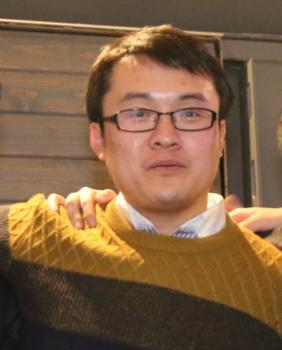Qing Ai (2012 cohort)
 Please provide a brief summary of your PhD project.
Please provide a brief summary of your PhD project.
Shape-adaptive lightweight structures are considered as promising candidates for the next generation of high-lift devices for aeroplanes. My PhD project focused on design, building and testing of novel intelligently responsive composite morphing structures for improved aerodynamic and aeroacoustic performance.
Did you choose to continue your XP project as a PhD? Why or why not?
Yes, I continued the XP project through to my PhD, as it was well structured and results were promising for a full PhD project.
How did the taught component benefit your PhD research?
The first year taught component provided all the necessary and fundamental knowledge for my PhD project including project management and other practical skills.
How did the cohort structure benefit your PhD research?
I had many meaningful discussions with my cohort colleagues and they helped me a lot in and out of the office.
What did you most value about being part of a CDT?
The CDT program has many specially tailored seminars and training courses that enriched my academic life many ways.
What was the 'impact' of your research?
My research extended the scope of morphing structures regarding the design, application and performance assessment. As an extension of the PhD project, my design will be soon tested on a rotating test rig for wind turbine blade application, among the very first of its kind.
What was your destination on leaving the CDT?
A Research Associate in the Department of Aerospace Engineering at the University of Bristol.
What are your main responsibilities?
It is a research and development engineer role, which looks at the further promotion of morphing structures in industrial applications including aeroplanes, wind turbines and automobiles.
Where do you see yourself in five to ten years' time?
A senior R&D engineer/ engineering manager in a prestigious technology centre/company.
How have the skills and knowledge you acquired during your time in the CDT helped develop your career?
Skills developed and honed in my research experience in the CDT are a fundamentally enabling element of my future career development.
